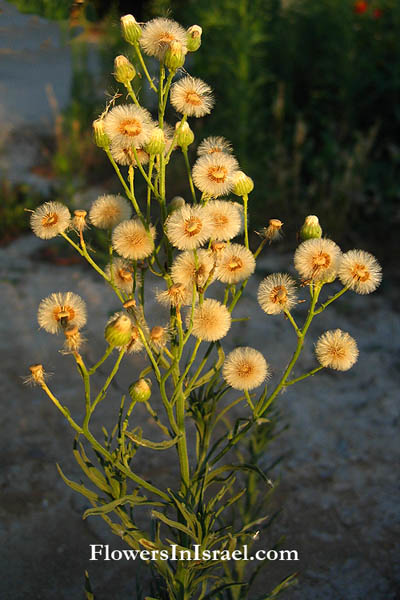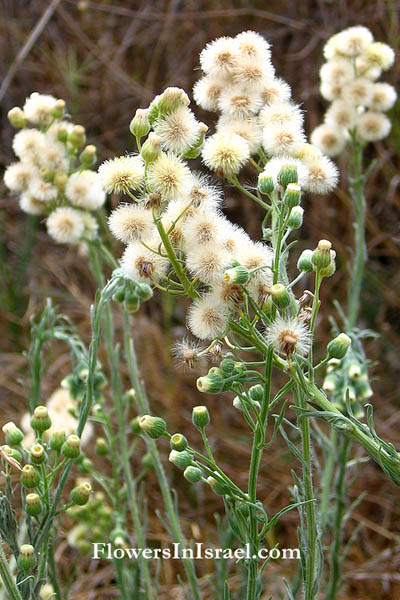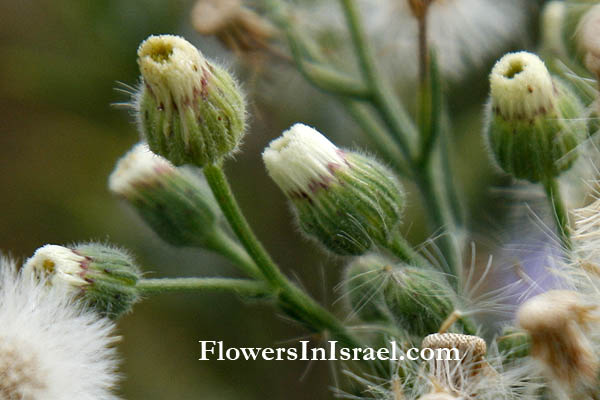
| Scientific name: | Conyza bonariensis (L.) Cronquist | |
| Synonym name: | Erigeron crispus Pourret | |
| Common name: | Flax-leaved Fleabane, Hairy Fleabane, Asthmaweed, South American Horseweed | |
| Hebrew name: | קייצת מסולסלת | |
| Arabic name: | ازنيوك, KoweenzA | |
| Egypt: | حشيش الجبل "Hashishet El-Gabal" | |
| Plant Family: | Compositae / Asteraceae, מורכבים |

|
| Life form: | Therophyte, annual | |
| Stems: | Erect; main stems usually branch near the base, lateral stems often taller than the central stem | |
| Leaves: | Alternate, entire, narrow lanceolate leaves, coarsely toothed, covered with shoet stiff and long soft hairs; upper leaves are smaller and linear | |
| Flowers: | Whitish flower heads; 10-20 disk flowers surrounded by female flowers that appear disklike; phyllaries mostly green or purplish, midveins sometimes brownish, not conspicuously filled with resin, densely hairy | |
| Fruits / pods: | Achenes; pappus bristles mostly 3-4mm long, brownish white, often reddish with age. | |
| Flowering Period: | April, May, June, July, August, September, October, November | |
| Habitat: | Disturbed soils, cultivated areas | |
| Distribution: | Mediterranean Woodlands and Shrublands, Semi-steppe shrublands, Shrub-steppes, Deserts and extreme deserts, Montane vegetation of Mt. Hermon | |
| Chorotype: | American | |
| Summer shedding: | Ephemeral |

Derivation of the botanical name: Conyza, konops (Greek), "a gnat", and used by Pliny as a name for some kind of a fleabane, or konis (Greek), "dust", its powder being used to kill fleas. bonariensis, named after Buenos Aires, Argentina. Erigeron, Greek, er, spring; geron, an old man; suggested by the hoariness of some vernal species. crispus, finely waved; closely curled.

|